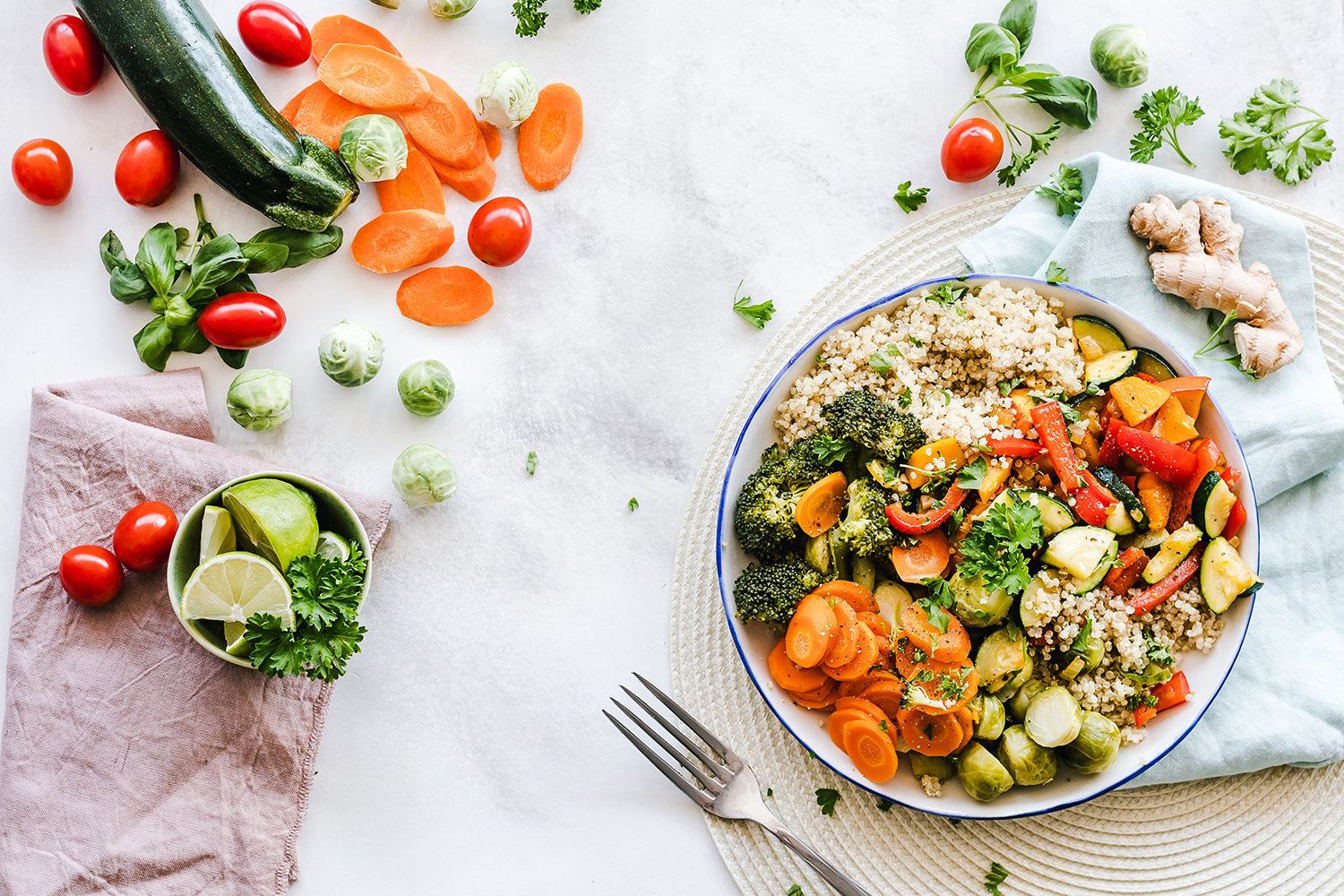What is a vegetarian diet?
A vegetarian diet is a diet that excludes meat, poultry, and seafood. Vegetarians typically eat a variety of plant-based foods, including fruits, vegetables, grains, legumes, nuts, and seeds.
There are several different types of vegetarian diets, including:
- Lacto-ovo vegetarian: This diet excludes meat, poultry, and fish, but includes dairy products and eggs.
- Lacto-vegetarian: This diet excludes meat, poultry, fish, and eggs, but includes dairy products.
- Ovo-vegetarian: This diet excludes meat, poultry, fish, and dairy products, but includes eggs.
- Vegan: This diet excludes all animal products, including meat, poultry, fish, dairy, and eggs.
Why might someone be vegetarian?
People choose to follow a vegetarian diet for a variety of reasons, including:
Ethical reasons
Many people choose to follow a vegetarian diet because they believe it is wrong to kill and eat animals. They may also dislike the way animals are treated in factory farming and other animal agriculture practices.
Environmental reasons
Animal agriculture has a significant impact on the environment, including deforestation, water pollution, and greenhouse gas emissions. Some people choose to follow a vegetarian diet as a way to reduce their environmental footprint.
Health reasons
Studies have shown that a well-planned vegetarian diet can be healthy and may reduce the risk of chronic diseases such as heart disease, diabetes, and some types of cancer. Some people choose to follow a vegetarian diet for these health benefits.
Religious or cultural reasons
Some religions or cultures have dietary restrictions that include avoiding meat.
Personal preferences
Some people simply do not like the taste or texture of meat and choose to follow a vegetarian diet for personal reasons.
Overall, there are many different reasons why someone might choose to follow a vegetarian diet, and the decision is often a personal one based on individual beliefs, values, and preferences.
Is a vegetarian diet healthy?
Vegetarian diets have been associated with a lower risk of chronic diseases such as heart disease, diabetes, and some types of cancer. However, if a vegetarian diet is high in processed foods and low in fruits, vegetables, whole grains, and other nutrient-dense foods, it can increase the risk of chronic diseases. A well-planned vegetarian diet can be nutritionally adequate and provide all the nutrients your body needs. However, there are some nutrients that are more challenging to get in sufficient amounts on a vegetarian diet, and if these nutrients are not adequately addressed, it can lead to nutritional deficiencies.
Here are some of the nutrients that can be more challenging to get in sufficient amounts on a vegetarian diet and their relevant functions:
- Protein: Protein is important for building and repairing tissues in the body. It’s important to eat a variety of these protein sources throughout the day to ensure you are getting all the essential amino acids your body needs.
- Iron: Iron is important for the production of red blood cells and the transport of oxygen throughout the body.
- Calcium: Calcium is important for building and maintaining strong bones.
- Vitamin B12: Vitamin B12 is important for the formation of red blood cells and the proper functioning of the nervous system. Vegetarians who do not eat dairy or eggs may need to take a vitamin B12 supplement or eat fortified foods.
- Omega-3 fatty acids: Omega-3 fatty acids are important for heart and brain health.
Deficiencies in these nutrients can lead to a range of health problems, including anemia, bone loss, and impaired immune function.
How can a dietitian help those on a vegetarian diet?
If you are considering a vegetarian diet, have recently started following one, or have been following one for a while, it is a good idea to see an accredited practising dietitian to help ensure you are meeting your nutritional needs.
A registered dietitian can provide personalized guidance and support to help you plan meals that are balanced and provide all the nutrients your body needs. Here are some of the ways a registered dietitian can help you with a vegetarian diet:
Assess your nutritional needs
A dietitian can assess your individual nutritional needs and help you plan a diet that provides all the nutrients your body needs, including protein, iron, calcium, and vitamin B12.
Provide education and resources
A dietitian can provide you with educational materials and resources to help you understand the nutritional requirements of a vegetarian diet and how to meet them.
Help with meal planning
A dietitian can help you plan meals that are balanced and meet your nutritional needs, taking into account your individual preferences, lifestyle, and health goals.
Address concerns or challenges
If you have concerns or challenges related to your vegetarian diet, such as difficulty getting enough protein or vitamin B12, a dietitian can help you address these issues and find solutions that work for you.
Overall, seeing a dietitian can be an important step in ensuring that you are following a vegetarian diet in a way that is healthy, balanced, and meets your nutritional needs.













